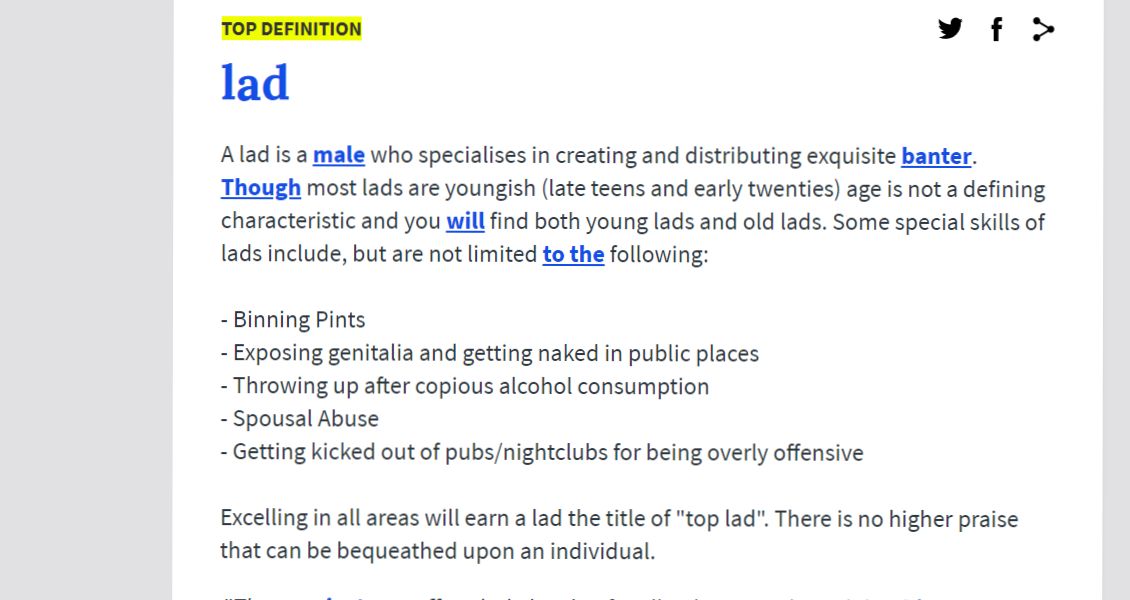
Durham’s lad culture: how bad is it?
‘Boys will be boys’ but where do we draw the line?
What is lad culture?
This is a difficult subject to tackle without offending anyone. So disclaimer, this is not lad-bashing, it's just musing over this potentially problematic and harmful culture that University breeds.
According to the reputable source that is Wikipedia, lad culture is "the shunning of sensitivity in favour of drinking, violence and sexism". At the surface this may seem harmless, however, when it begins to offend and injure those who surround it, there are issues.
It is important to distinguish being "male" from being "masculine", just like being a "female" and being "feminine" are different. Lad culture is a misplaced view of "manliness", and so can create a multitude of vulnerabilities and problems.
Inevitably, with lad culture comes peer pressure, and a focus on "hyper-masculine" pursuits. This can sometimes get nasty. There can be an aggressive pressure to "pull" girls, "chop" pints and provide solid "banter". It is difficult to grasp how this makes someone "masculine", especially since it disregards emotion and sensitivity, and is often destructive in doing so.

'Excelling in all areas will earn a lad the title of "top lad". There is no higher praise that can be bequeathed upon an individual.'
Though lad culture is not explicitly a cause, it is interesting to bear in mind that suicide remains the most common cause for death amongst men aged 20-49 in England and Wales. Also that just 1 in 50 cases of sexual misconduct are done whilst sober. Consider that 31% of men drink harmful amounts of alcohol in contrast to 16% of women.
Banter – where do we draw the line?
To some extent, where laddish banter is in private, it's okay, since potentially hurtful comments aren't actually directed at anyone. However, this does normalise these abusive attitudes. It becomes problematic when beliefs are passed as "banter" because it fails to acknowledge the conceivably racist, homophobic and misogynistic rhetoric.
There is a growing inclination towards "call out culture". In an ideal world, this is the perfect solution, but it's difficult to know when to speak out and how to really make an impact. It's frustrating that we're forced to pick our battles, however, if you feel strongly enough and you're in a safe environment to do so, call it out!

Is it particularly bad at Durham?
Undeniably, lad culture is something most of us perpetrate and experience and this is especially so in a university environment where we're trying to make friends and experience new things. Societies and sports teams have regular "welcome drinks" and socials, which are mostly fun. However, I for one don't enjoy DU Rugby's Jimmy's antics, nor am I comfortable with rumours of secret societies that keep records of who members have slept with.
We have an amazing collegiate system which nurtures an environment for the reporting of abuse and harassment. Although Durham is in the top 5 UK universities for sexual misconduct, this problem is not unique. The issue may lie in the intensity of Durham's student environment; 20 mins is the furthest you have to walk to see anyone, and options for nights out are particularly limited.
It's difficult to escape this Durham bubble. There is the constant pressure to fit in, and the ever-present fear of being accused of being a "wetter". But if we step back and think, we may find that the we don't actually agree with how we act. I highly doubt that people are misogynists, homophobes, or classists, but demeaning a girl, calling someone gay as an insult and planning a Maggie vs Miners social is exactly that.









































